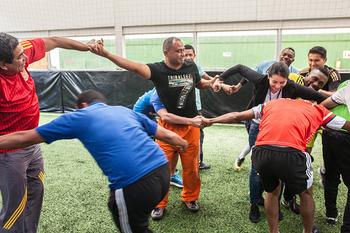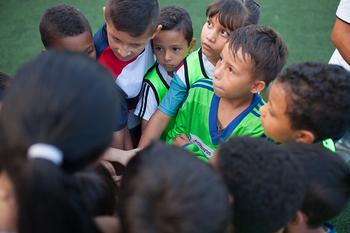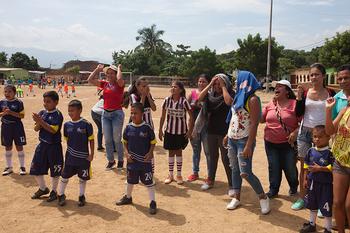Approach
Sport has been recognised by the UN as ‘a means to promote education, development, health and peace’. The Sport for Development approach is also being applied in German development cooperation. Participating in sport is not only a way for children and young people to remain healthy. They also learn to assume responsibility, act in a spirit of fairness and resolve conflicts peacefully. These qualities are key prerequisites for success in later life and can help young people gain a foothold in the job market.
The project trains coaches, who act as role models and mentors for children and young people, boosting their confidence and helping them to improve their prospects for the future. Through the training they provide, they also address issues relating to violence, health, environmental protection and gender equality.
The Colombian Government already uses sport as a development policy instrument in its peacebuilding and reconciliation activities, which is why Colombia was selected by the German Federal Ministry for Economic Cooperation and Development as a partner country for the Sport for Development programme. The project’s activities build on those being carried out by the Colombian Government and non-governmental organisations, and there is close cooperation with partners from the fields of politics, academia and civil society.
The project has worked with its Colombian partners to develop the Fútbol con Principios (Football with Principles) method, which aims to teach children and young people social skills and values such as respect and team spirit through football. The method builds on existing Colombian strategies for promoting peace through football, international Sport for Development approaches, modern sports education methods and insights from the field of youth psychology. The emphasis is on providing further training for coaches.
The project is also implementing the programme Paz en Movimiento in partnership with the Colombian Ministry of Foreign Affairs. The programme focuses on Colombia’s border regions, which are often marked by the weak presence of state institutions, economic and political neglect and the proliferation of illegal actors. It provides training for coaches in accordance with the Futbol con Principios approach, including to former combatants. This helps them integrate into communities and assume a responsible role in society.


